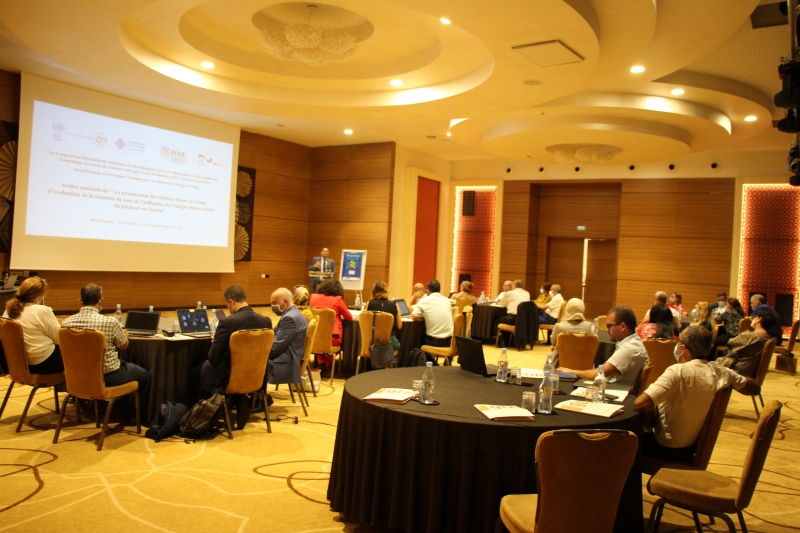A roundtable presented the findings of a national study to identify the baseline energy consumption of the buildings sector in Tunisia. This publication was the fruit of the joint efforts of German Development Bank (KfW), the United Nations Economic and Social Commission for Western Asia (UN ESCWA), as well as the German Agency for International cooperation (GIZ), represented by PEEB.
Implemented in close partnership with the Tunisian National Energy Management Agency (ANME), this extensive quantitative research provides the most up to date information on existing and future building stocks in Tunisia, as well as their current and projects energy consumption. The studies’ results will be used for the development of the next five-year (2021-2025) energy management plan.
A snapshot on some of the key results: The estimated building stock in the residential and tertiary sector amounts to 533 million square meters, of which residential buildings make up around 80%. Within the residential sector, final energy consumption has risen by almost 20% from 2014 to 2017 – a large driver of which is electricity consumption for cooling (22% of electricity consumption was for cooling in 2017, up from only 4% in 2009!). This points at the necessity to manage thermal comfort better while reducing costly (peak) energy demand and emissions from cooling – through better building design, but also more efficient appliances.
Among the recommendations of the workshop was also an even closer collaboration between the national electric utility (Société Tunisienne d’Electricité et du GAZ, STEG) and the National Institute for Statistics (Institut National de Statistique, INS), who could help monitor the achievement of set targets through inclusion of energy-performance related key indicators in their periodical surveys and national census.


 more
more